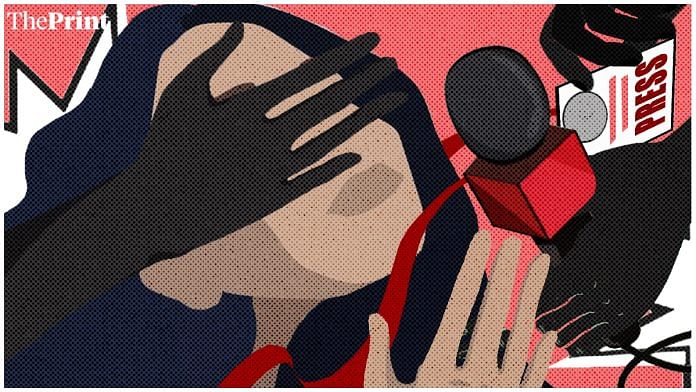New Delhi: A former BBC Hindi employee has accused the organisation of caste discrimination and mental torture. Meena Kotwal, a Dalit journalist, also alleges that she lost out on a contract at the media house because of her caste.
“BBC Hindi selected eight people with me. But only my contract was temporary,” Kotwal told ThePrint. “People in other languages also joined on temporary contracts but they were made permanent.”
According to Kotwal, her former colleagues at BBC Hindi found out about her caste within two months of her joining the organisation in September 2017. She was let go in July 2019.
She told ThePrint that she raised the issue of discrimination with the BBC Hindi editor and the editor of Indian Languages and was assured that the condition would improve.
However, another editor, Kotwal alleged, maligned her professional image. “I was caricatured in a way that people in the office began believing that I was not meant for this job,” she said. “I was on an anti-depressant and tried committing suicide twice.”
To substantiate her allegations, Kotwal cited a post on the portal Media Vigil, allegedly written anonymously by a BBC Hindi employee. The post claims that Kotwal’s online test had been taken by her husband who is Brahmin.
“It means that whatever I did in Jamia Islamia, the Indian Institute of Mass Communication and my MPhil don’t count. Was my husband appearing for me at these places as well?” she asked. “And as he is Brahmin and I am Dalit, am I not capable?”
Media Vigil has since deleted the post and apologised unconditionally.
An employee of BBC Hindi, on the condition of anonymity, said that in the last six months, the media house had two vacancies. “If wanted, Kotwal could have been made a permanent employee,” the employee said.
BBC Hindi has, however, denied the allegations, saying that it abides by the laws of the country it works in and that it doesn’t comment on personal issues.
It also defended its recruitment policy. “Many people work for us on a fixed-term basis and the renewal depends on factors such as editorial requirements and available resources,” a BBC spokesperson said.
Also read: ‘You don’t look Dalit’ and other things ‘upper castes’ must stop saying to Dalits immediately
Diversity at BBC Hindi
Another former employee said BBC Hindi has a diversity policy in place, through which it has been trying to offer equal opportunities to everyone, irrespective of identity.
“BBC keeps diversity in mind while hiring. It also emphasizes on proportional representation of women and men,” Nivedita Pathak, who used to work on BBC’s diversity policy, told ThePrint. “The same applies to content as well.”
A highly-placed source in the organisation also claimed that Kotwal herself had referred to her caste during the job interview, adding that once she completed her tenure, there wasn’t any suitable post for her.
The source further said that Kotwal had been given the chance to report despite the fact that she was hired for the desk.
‘A casteist work culture’
According to the BBC journalist quoted above, Kotwal was the only Dalit at BBC Hindi. The journalist also said that some employees routinely refer to ‘caste names’ rather than first names to address each other.
“Terms like ‘Panditji’ and ‘Bhumihar’ are frequently used in the BBC Hindi office,” the journalist said.
ThePrint has learnt that on 15 July, the BBC Hindi administration had called a special meeting over a social media post, which had revealed the castes of employees.
“We have been working here for the last 14 years and have been calling each other like that,” said another journalist who attended the meeting. “We can’t change this work culture.”
Also read: How Gandhi made Ambedkar a villain in his fight to be the real representative of Dalits




Support her
Unleash the full force of the law on BBC.